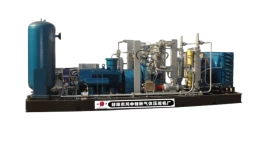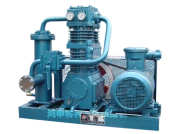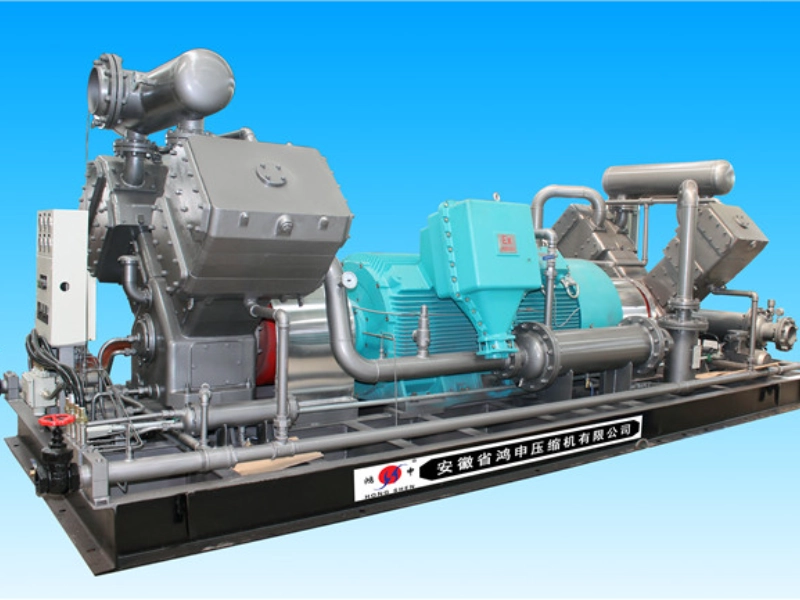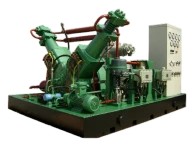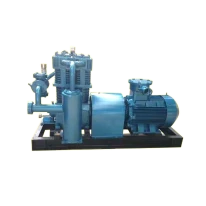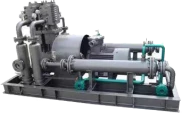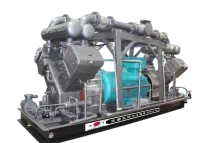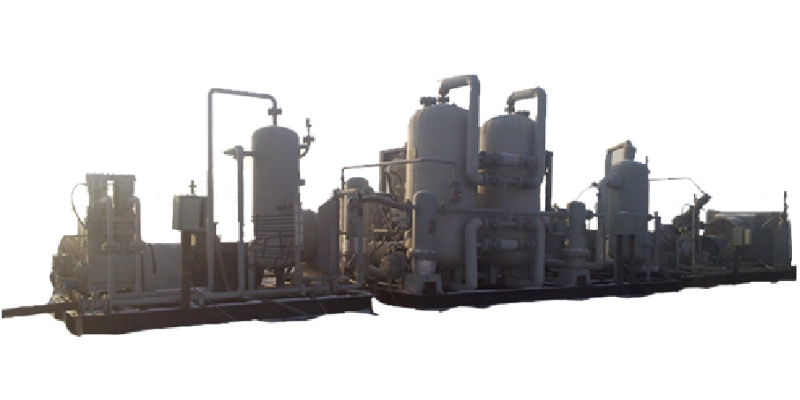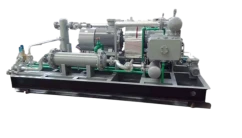With the transformation of global energy, hydrogen energy has gradually become a hot topic in the field of clean energy. As an environmentally friendly and efficient energy carrier, hydrogen has great application potential in industrial production, transportation and other fields. The storage and transportation of hydrogen has become one of the important technologies for achieving the popularization of hydrogen energy. As a key equipment in hydrogen storage and transportation, the working principle of hydrogen compressor is crucial.
The role of hydrogen compressor
The main function of hydrogen compressor is to compress hydrogen from a low pressure state to a high pressure state for easy storage and transportation. Since hydrogen itself has a low density, direct storage or transportation is often inconvenient. Through compression, the volume of hydrogen is greatly reduced, making it more convenient for efficient transportation and ensuring the safe storage of hydrogen.
Working principle of hydrogen compressor
Hydrogen compressor compresses hydrogen to the required high pressure state by utilizing mechanical energy. Its basic working principle can be summarized as follows:
Inhalation stage: During the inhalation process, the intake valve of the hydrogen compressor is opened, and hydrogen enters the compressor through the filtration system. At this time, the hydrogen is under normal pressure and the temperature is low.
Compression stage: After hydrogen enters the compression chamber, the piston or rotor of the compressor starts working and compresses the hydrogen through mechanical movement. Depending on the type of hydrogen compressor, the compression process can be single-stage or multi-stage. Multi-stage compression can reduce the temperature and pressure increase of hydrogen in each compression stage, thereby improving compression efficiency and reducing heat generation.
Exhaust stage: The compressed hydrogen is discharged under high pressure, flows out through the outlet valve, and is sent to the gas storage tank. During the exhaust process, the temperature of hydrogen will increase significantly, so a cooling system is usually required to ensure that the temperature of hydrogen is within a safe range.
Cooling and storage: Since hydrogen releases a lot of heat during the compression process, the compressor needs to be equipped with a cooling system to reduce the temperature and prevent the equipment from overheating. In addition, in order to ensure the safety of hydrogen, storage tanks usually have multiple safety protection measures to avoid leakage or other dangerous situations
Types of hydrogen compressors
Hydrogen compressors can be mainly divided into the following types according to their working principles and design forms:
Piston hydrogen compressor: This is a common type of hydrogen compressor that compresses hydrogen through the reciprocating motion of the piston. Piston compressors are suitable for low and medium pressure hydrogen compression, and are usually used for small-scale hydrogen storage and laboratory applications.
Screw hydrogen compressor: Screw compressors compress hydrogen by meshing two spiral rotors. It has high working efficiency, is suitable for large-scale hydrogen compression and high-pressure storage, and is widely used in the industrial field.
Centrifugal hydrogen compressor: Centrifugal compressors accelerate hydrogen through high-speed rotating impellers, and then convert hydrogen into high-pressure airflow through diffusers. This type of compressor has the characteristics of high flow and high efficiency, and is suitable for large-scale hydrogen transportation and high-pressure storage.
Application prospects of hydrogen compressors
With the widespread application of hydrogen energy, the demand for hydrogen compressors in many fields will continue to grow. In terms of transportation, hydrogen fuel cell vehicles require high-pressure hydrogen as energy reserves; in industrial production, high-efficiency hydrogen compressors can be used for hydrogen storage and transportation to ensure a stable supply of energy. In addition, with the continuous development of hydrogen energy technology, the application prospects of hydrogen compressors in hydrogen power generation, aerospace and other fields are also very broad.
Summary
As a key equipment in the hydrogen energy industry chain, the working principle of hydrogen compressor directly affects the efficiency and safety of hydrogen storage, transportation and application. Hongshen Energy Equipment has been deeply involved in the unconventional compressor industry for 30 years and has promoted the innovative development of new energy compressor systems. If you are interested in our products, please feel free to contact us.

